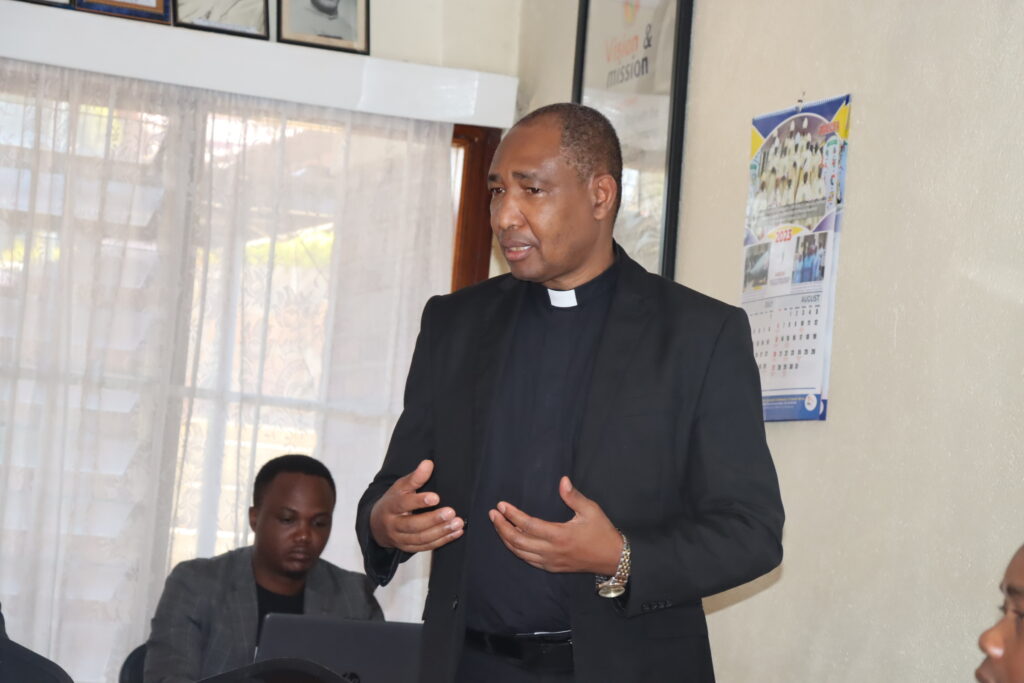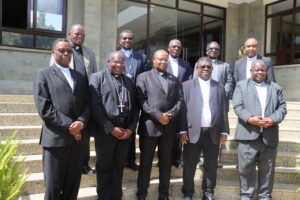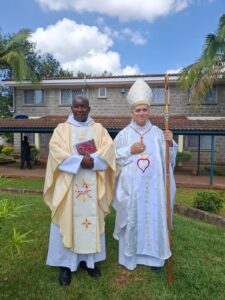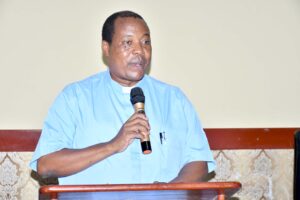AMECEA: Church Cannot Turn a Blind Eye to Modern Technology, Says AMECEA Secretary General Ahead of CEPACS Golden Jubilee

AMECEA Secretary General, Fr. Anthony Makunde
Sr. Jecinter Antoinette Okoth, FSSA
As technology keeps advancing and changing the way of operation in society, the Church cannot keep silent and continue with her mission of evangelization without giving a second thought to technology, the Secretary-General for the Association of Member Episcopal Conferences in Eastern Africa (AMECEA) has said.
In responding to an interview with AMECEA Online on how the African Church can advance communication through the ever-changing technologies and encourage coordination in the continent, Fr. Anthony Makunde acknowledged that the Church has no option of staying behind as technology continues to advance but to move with the signs of time.
“The Church cannot remain behind when it comes to the use of modern technologies for evangelization. We need to journey with the world as far as the use of technology is concerned,” the Tanzanian cleric disclosed and expounded, “Modern technology will help us reach the bigger group of Church members, particularly the youths who mostly use these new communication tools.”
Fr. Makunde was speaking prior to the Golden Jubilee celebration of the Pan African Episcopal Committee for Social Communications (CEPACS) scheduled for November 18-21, in Lagos, Nigeria, a committee established by the Symposium of Episcopal Conferences of Africa and Madagascar (SECAM) to animate, encourage, and coordinate media activities of the Catholic Church in Africa in collaboration with regional and national offices as it fulfills its mandate to promote the use of modern means of mass communications as tools of evangelization in the continent.
According to the AMECEA Secretary General, the COVID-19 pandemic was a period of learning when the entire world as well as the Church learned that “through the means of communication, we can reach those who are not physically present in places of worship or places of other encounters and meetings.”
Even though the activities of the committee which comprises the Bishops responsible for Social Communications in the eight SECAM regions had gone down for some time and was a bit inactive, “the committee has many advantages,” Fr. Makunde said.
“It is a platform for sharing what goes on at various national conferences, it has the advantage of networking continental activities as the bishops learn from each other and benchmark so that what is achieved in one conference can be implemented in the other conference,” Fr. Makunde disclosed and continued, the committee is also a learning platform for the bishops since a vibrant and collaborative forum will help the bishops address some challenges affecting the continent, have a common voice towards cross-cutting issues and speak with one voice as the African Church.”
The eight regional conferences of SECAM whose members are in CEPACS include: The Association of Episcopal Conferences of Central Africa (ACEAC), the Association of Episcopal Conferences of Central Africa Region (ACERAC), Regional Episcopal Conferences of West Africa (RECOWA/CERAO), Assembly of the Catholic Hierarchy of Egypt (AHCE), Regional Episcopal Conferences of North Africa (CERNA), Association of Member Episcopal Conferences of Eastern Africa (AMECEA)m Inter-Regional Meeting of the Bishops of Southern Africa (IMBISA) and Madagascar and Episcopal Conferences of Indian Ocean (CEDOI).
Fr. Makunde acknowledged that CEPACS which aims to recommend to the regions and Episcopal Conferences the study and formation sessions on the media, and at the same time work in close collaboration with the Pontifical Council for Social Communications, with the International Catholic Organizations for Social Communications, has been promoting communication offices in the continent, a move that has resulted to increased communication tools for evangelization in the African Church.
“CEPACS achievement can be realized in the rise of national radios, print media which has been a key tool in modern technology, and more Catholic Televisions in conferences as tools for evangelization,” he said.


